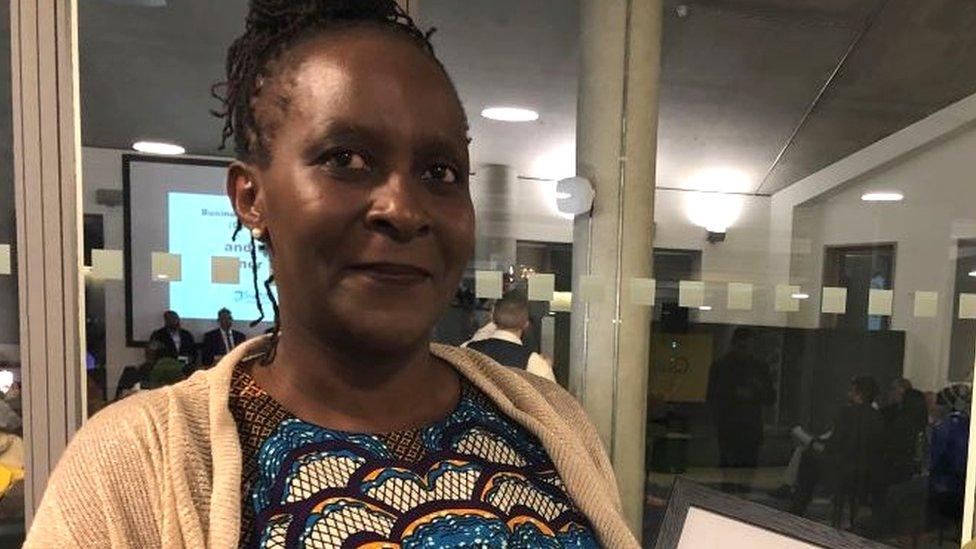Gender justice call for black and minoritised women
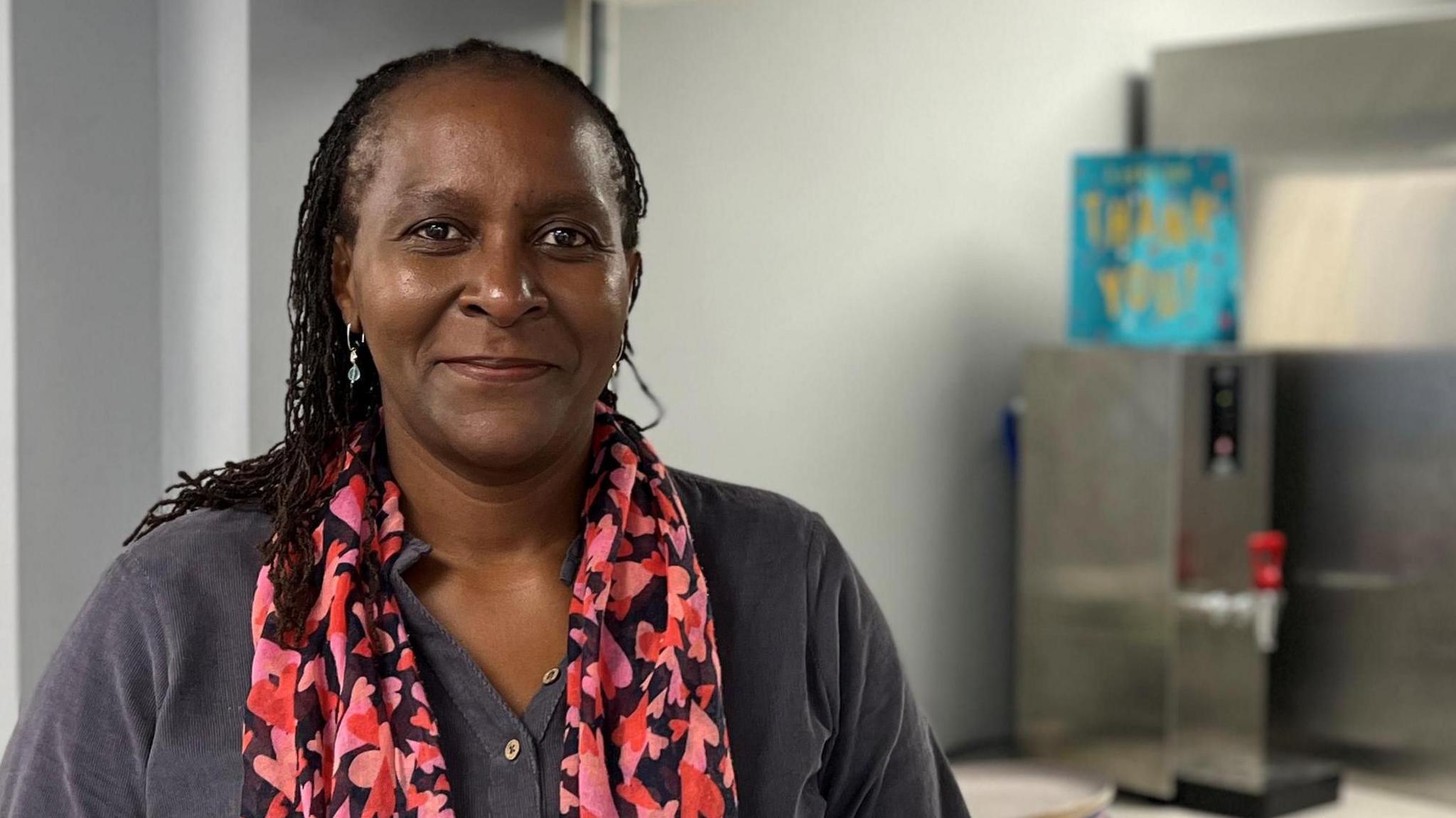
Mollin Delve founded Phoebe in Ipswich and has now expanded to include youth projects
- Published
Charity leaders, activists, professionals and survivors of abuse have been sharing how to support black and minoritised migrant women.
The support group Phoebe hosted a day-long conference on Gender Justice & Intersectional Practice, external in Ipswich.
Founder Mollin Delve said: "Women from countries where there is war, or problems with violence and abuse, have a lot of trauma and are afraid of seeking support.
"Intersectionality is a framework which really unpicks race, gender, class, nationality or social status, so their needs can be met by UK authorities and services."
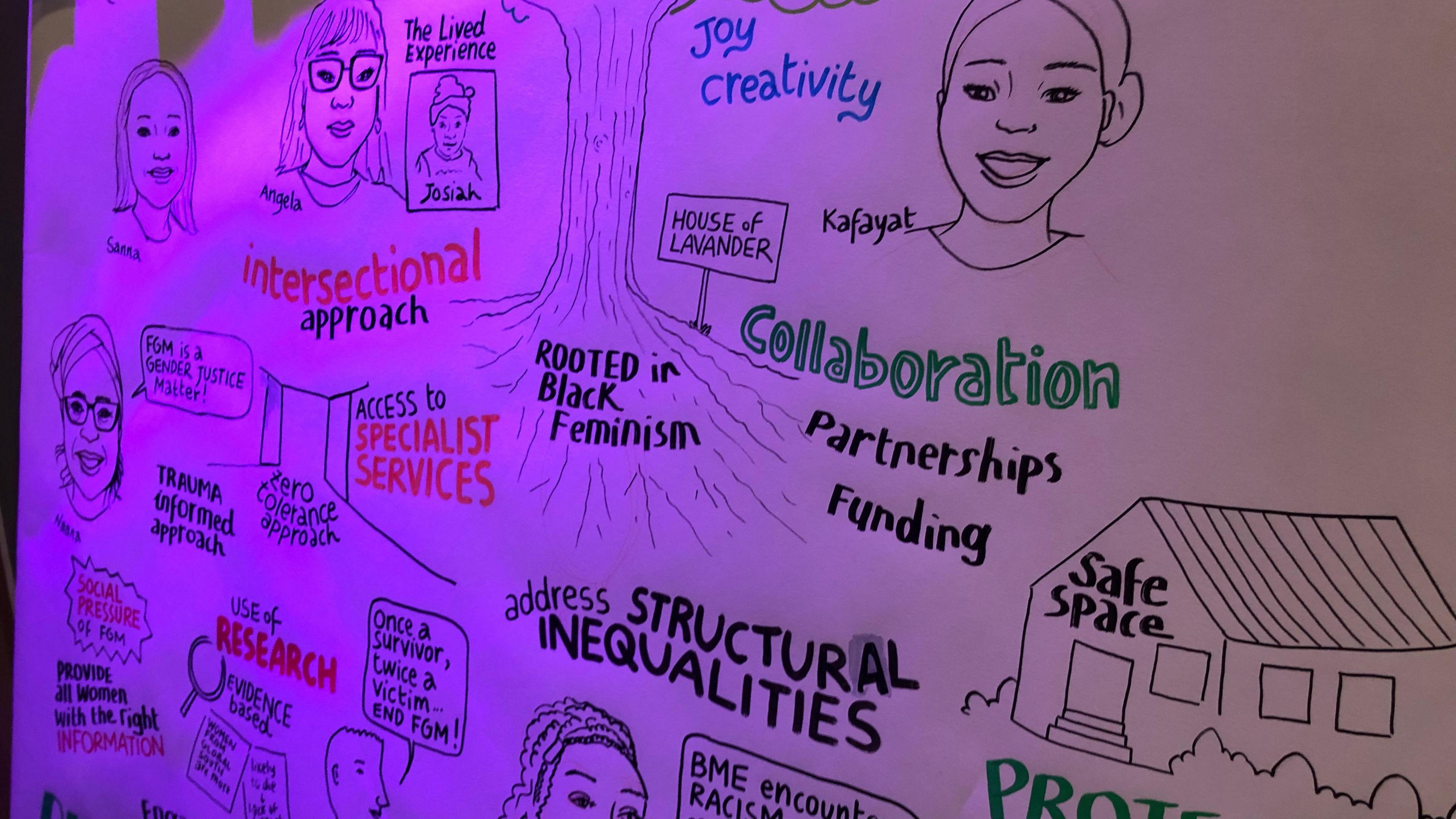
A visual narrative of the conference was created by artist Federica Ciotti, who created the piece as the speakers were on stage
The conference was held at the Hope Centre in Ipswich on Friday.
One of the aims was to "embed an understanding of the intersectional nature of black and migrant women’s experience of abuse and why they are more vulnerable".
Ms Delve explained: "Immigration status is a big factor.
"UK born-and-bred white women don't need to be precious about holding onto their passport.
"But our women have to keep onto their passports, because that's a tool which perpetrators are using.
"They'll confiscate someone's passport, they will block them from working and then threaten them with deportation or threaten their family back home.
"There's layers and layers of opportunities that perpetrators are using to abuse women, so we want to raise awareness and find solutions for."
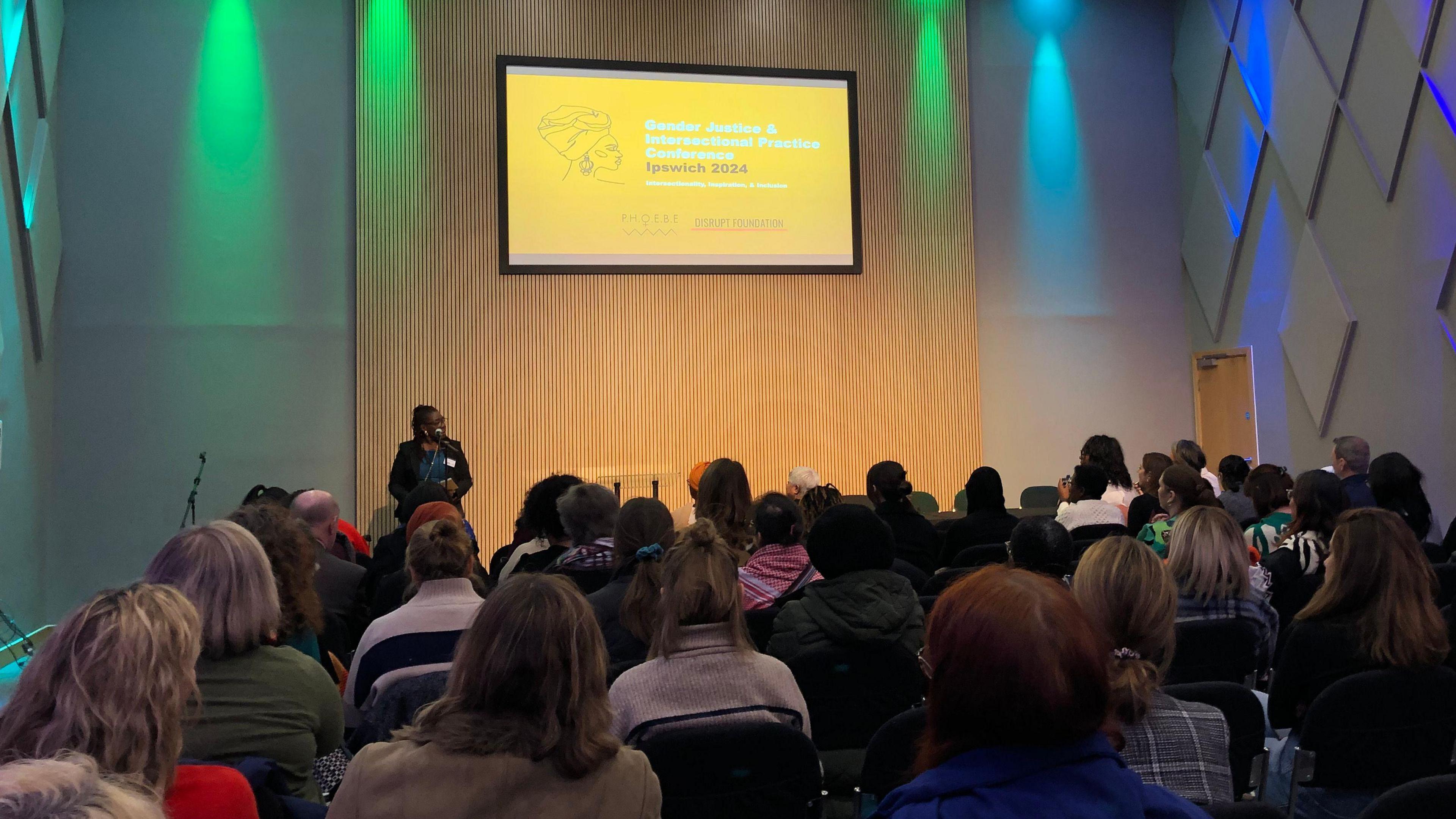
Kafayat Okanlawon, from House of Lavender, spoke about their work in London and the importance of a holistic approach to supporting younger women
Kafayat Okanlawon, from the London-based House of Lavender, spoke about the work they do and the importance for organisations to work together, especially when funding is limited.
She said: "London can be such a big harbour for organisations, but there's something really important about work that's being done outside of London.
"It was important to be here, not only in solidarity with the Phoebe Centre, but also to talk about the issues of young black women.
"There's something about doing things differently, about innovation.
"There are other ways we can collaborate, instead of working against each other when it comes to funding, let's put in joint application instead of fighting over small funding pots that we get."
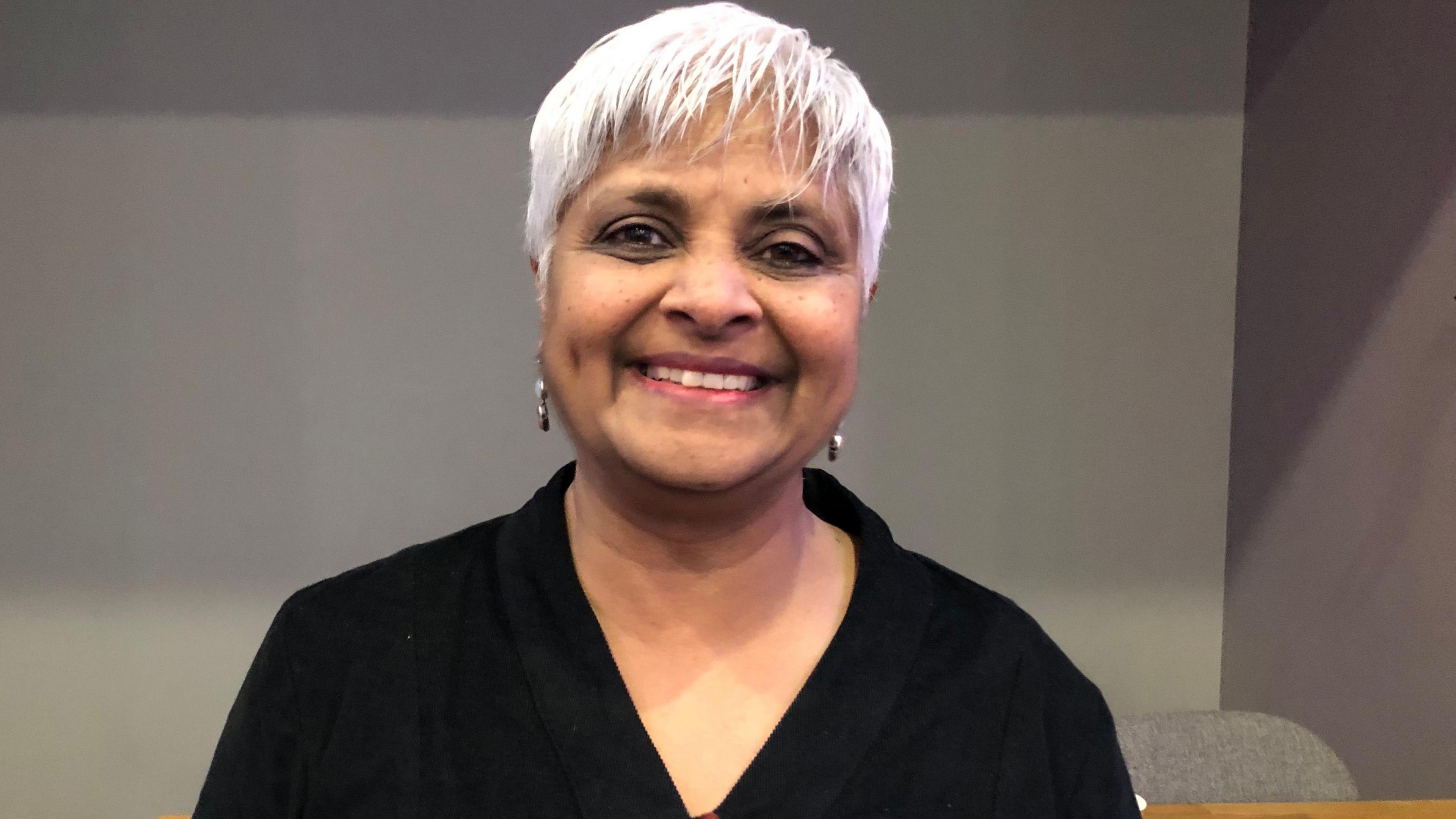
Pragna Patel founded Project Resist, an advocacy and campaigning group for black and minority women
Pragna Patel is co–founder and co–director of Project Resist, and the former director and founding member of the Southall Black Sisters.
She was one of the keynote speakers and said it was vital that black and minority women's voices were moved "from the margins to the centre".
"You don't reach women by going to the community leaders and assuming that the community leaders will speak on behalf of the women," she told BBC Radio Suffolk.
"One of the barriers they face are cultural and religious, from faith leaders who have different understandings of issues like violence against women, FGM [female genital mutilation], and forced marriage.
"Whose job it is to bring women back into the fold and ensure that they maintain their cultural status quo, so going to those leaderships, and assuming that is your community engagement is a non starter, you're not reaching women."
The scale of the problem in the UK
According to a statement, external earlier this year from the National Police Chiefs’ Council:
Over a million violence against women and girls (VAWG) related crimes were recorded during 2022/23, accounting for 20% of all police recorded crime
Police recorded VAWG related crime increased by 37% between 2018/23
At least one in every 12 women will be a victim per year, with the exact number expected to be much higher
One in every six murders related to domestic abuse in 22/23, with suspected victim suicides following domestic abuse rising year-on-year
There are also still huge inequalities in health outcomes, with a recent House of Commons Committee report, external finding "aternal mortality for black women is currently almost four times higher than for white women".
Also speaking at the conference was Ipswich Labour MP Jack Abbott, Supt Jasvinder Kaur from Suffolk Police, and Suffolk Police and Crime Commissioner Tim Passmore.
Mr Passmore has funded, external projects run by Phoebe which support victims of crime and help prevent vulnerable groups becoming involved in offending.
He agreed with calls for sustainable funding for groups engaging with vulnerable communities.
"I was pleased to hear that, that's something I've been on about for some time," he said.
"In our new Police and Crime Plan, a core part of it is going to look at the economic assessment of the failure to try and prevent all these things going wrong in the first place.
"It costs the taxpayer a fortune and it's not just about the pound notes, it's the human and the mental psychological issues as well.
"So let's get better data. Let's work together and have long-term thinking."
Get in touch
Do you have a story suggestion for Suffolk?
Follow Suffolk news on BBC Sounds, Facebook, external, Instagram, external and X, external.
Related topics
- Published6 May 2024
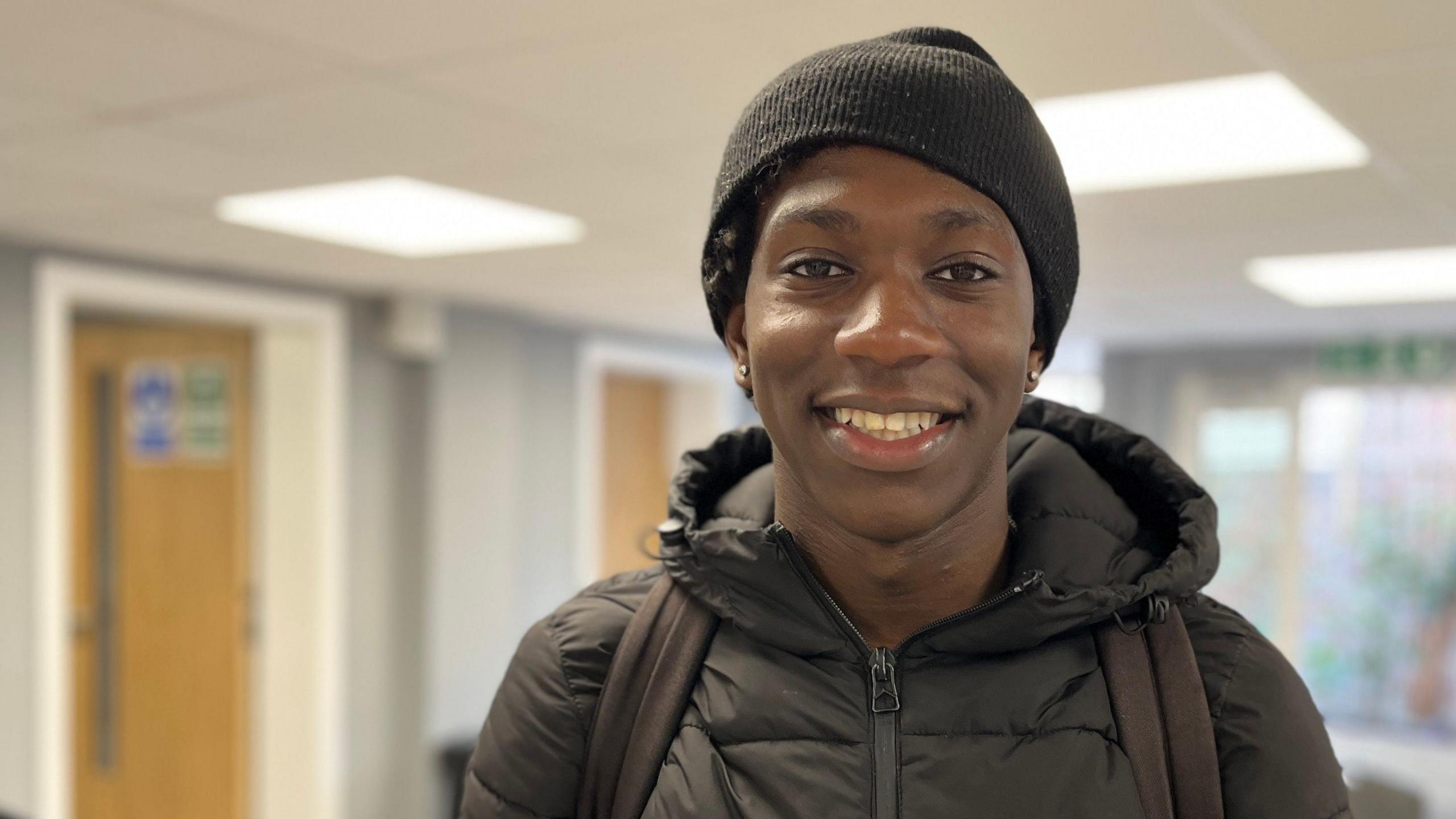
- Published16 May 2024
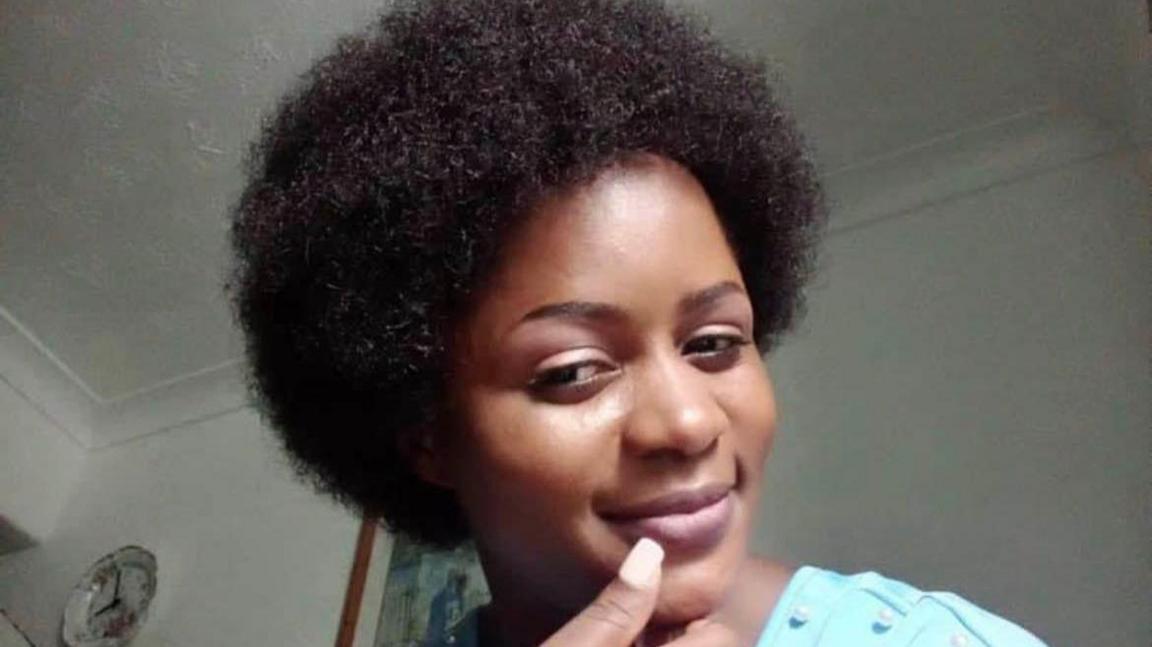
- Published16 November 2022
